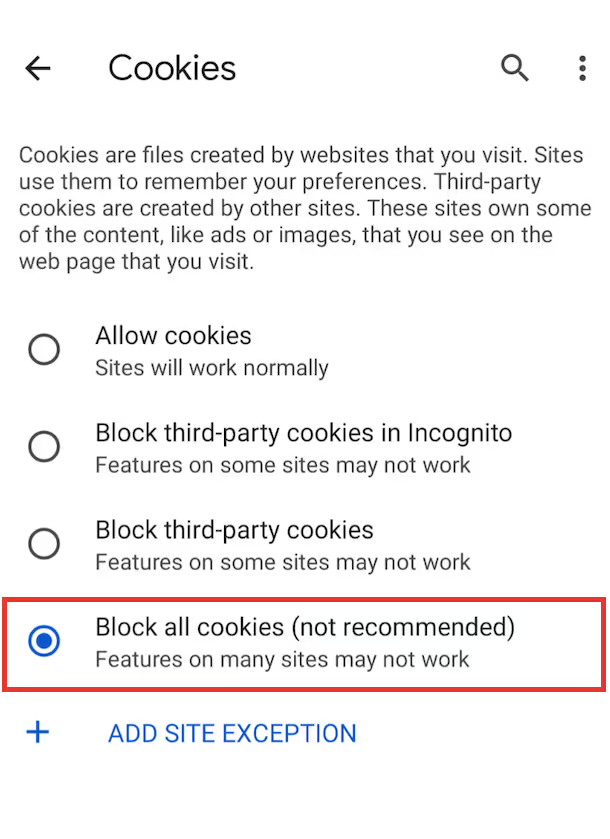Key Summary:
- Privacy-focused marketing is essential as consumers become more concerned about how their data is used.
- Australian privacy law, such as the Privacy Act and the GDPR, impacts marketing practices.
- The decline of third-party cookies means marketers must rely on first-party data for personalisation.
- First-party data collection strategies like consent-based marketing are crucial for privacy-compliant practices.
- Australian businesses must implement privacy-first tools and strategies for secure and ethical marketing.
Understanding Privacy-focused Marketing
Privacy-focused marketing is a shift from the traditional approach that heavily relies on collecting vast amounts of user data, often without explicit consent. In a privacy-first framework, businesses only use data consensually provided by users, respecting their preferences and boundaries.
As privacy concerns grow, marketing strategies are evolving to ensure consumer data is handled with care. Transparency and consent are now the foundation of all marketing efforts. By adopting these strategies, businesses can foster greater trust and loyalty among their audience.
Why Privacy Matters to Australian Consumers
Thanks to highly publicised data breaches and global regulatory changes, Australian consumers are more aware of how their data is collected, used, and shared. According to recent studies, 83% of Australians are concerned about how businesses handle their personal information, meaning marketers must address these concerns head-on.
By adopting privacy-first practices, businesses can assure their customers that their data is safe. This can lead to higher customer satisfaction and trust, which ultimately contributes to brand loyalty.
Key Privacy Regulations Impacting Australian Businesses
The Privacy Act 1988 regulates data privacy for Australian businesses. This act aligns with global standards like the General Data Protection Regulation (GDPR) in Europe. These laws set strict guidelines for how businesses can collect, store, and use consumer data.
Some key aspects of these regulations include:
- Consent requirements: Businesses must obtain explicit and informed consent before collecting personal data.
- Transparency: Companies must be upfront about how they will use consumer data.
- Data security: Businesses must implement robust security measures to protect stored data.
Ensuring compliance with these laws is a legal obligation and a crucial step in building trust with your audience.

The Decline of Third-party Cookies: What it Means for Marketers
For years, third-party cookies have been a cornerstone of targeted advertising. However, with browsers like Safari and Firefox blocking third-party cookies and Google Chrome phasing them out by 2024, marketers are faced with a new reality.
The decline of third-party cookies is reshaping how businesses track user behaviour online. Without cookies, businesses must shift their focus to first-party data, data collected directly from their audience through interactions like email sign-ups, purchases, or website activity.

First-party Data: The Key to Privacy-first Marketing
First-party data is data that businesses collect directly from their customers. This includes information shared voluntarily, such as email addresses, preferences, and past purchase histories. It’s a goldmine for businesses because it’s reliable, consent-based, and in line with privacy laws.
By leveraging first-party data, businesses can:
- Create highly targeted marketing campaigns.
- Build personalised experiences based on genuine customer insights.
- Strengthen relationships by respecting privacy while still offering tailored solutions.
Best Practices for Implementing Privacy-focused Marketing in Australia
To succeed in this new era, Australian businesses must embrace privacy-first strategies beyond compliance. Here are some best practices:
- Ask for Explicit Consent: Always be transparent and ask customers for clear permission before collecting their data. Use simple language to explain how their data will be used.
- Prioritise Data Security: Protecting customer data is critical. Ensure your systems are secure to prevent breaches, and regularly audit your data protection protocols.
- Focus on First-party Data: Encourage customers to engage with your brand directly to collect first-party data, such as through email sign-ups, customer surveys, and loyalty programs.
- Offer Value in Exchange for Data: Incentivise customers to share their information by offering value, such as discounts, exclusive content, or free resources, ensuring the exchange feels fair to the consumer.
.avif)
Tools and Strategies for Australian Businesses to Ensure Data Privacy
Implementing privacy-focused marketing practices is easier with the right tools and strategies in place. Here are a few essentials for Australian businesses:
- Customer Data Platforms (CDP): Use CDPs to gather and manage first-party data in a secure and centralised platform.
- Consent Management Platforms (CMP): These help businesses capture, store, and manage user consent efficiently, keeping your operations compliant with regulations like GDPR and the Privacy Act.
- Data Encryption Tools: Encryption prevents unauthorised access and ensures data protection at every stage, from collection to storage.
- Email Marketing Tools: Leverage email marketing platforms that prioritise data privacy, such as Mailchimp or Campaign Monitor, to send GDPR-compliant communications.
The Future of Privacy-focused Marketing in Australia
Privacy-focused marketing is not just a passing trend; it’s the future of digital advertising. As privacy laws evolve, businesses that adapt their marketing strategies to prioritise consent, transparency, and security will stand out from the competition.
In Australia, where consumer trust is paramount, businesses that adopt these practices early will build deeper relationships with their audience, paving the way for long-term success in a privacy-conscious market.
FAQ
1. What is privacy-focused marketing?
Privacy-focused marketing is an approach that prioritises consumer consent and data security, using only information provided willingly by customers.
2. How can Australian businesses collect data ethically?
Businesses should focus on collecting first-party data by offering value in exchange for information, such as through opt-in newsletters, customer surveys, or loyalty programs.
3. What are the key privacy laws in Australia?
The Privacy Act of 1988 and international laws like GDPR impact how Australian businesses handle customer data. Both emphasise transparency, consent, and security.
4. How will the end of third-party cookies affect marketing?
Marketers will need to rely on first-party data and other privacy-first strategies, shifting away from invasive tracking technologies like third-party cookies.
In conclusion, privacy-focused marketing is reshaping how businesses connect with consumers in Australia. Businesses can thrive in a more privacy-conscious environment by respecting data privacy, complying with regulations, and focusing on first-party data collection.
This guide is written by Hedgehog, a ‘Done With You’ digital marketing consultancy specialising in small and medium businesses in Australia. We offer digital marketing strategy, planning, training and implementation.







